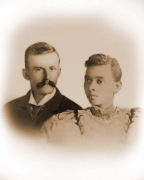By Tara Chadwick
Legislating Where We Live
One hundred years ago in Fort Lauderdale, these Jim Crow era Black Codes were manifested through urban planning and zoning ordinances enacted here and around the country. The quadrant system instituted in the 1920s legislated segregation in housing, education, and business affairs, requiring all Black businesses and families relocate and relegate themselves to the northwest quadrant of each city. During segregation, as during enslavement, White people and all who assimilated into the White socio-cultural worldview expended much effort creating a social order in which lighter skin color meant more favorable economic and legal standing, the impacts of which we are still witnessing today.
Our Home on Indigenous Land
The exact opposite of the “one drop rule” for African descendants was imposed “blood quantum” identity measurement imposed on Native Americans. Although concepts of identity and belonging based on measurement of blood quantum or “degree of Indian blood” was never part of most indigenous governance systems, and not adopted by US imposed tribal governments until after 1934, these post enslavement era “Racial Integrity” laws reinforced segregation, supported the creation and maintenance of Whiteness as a social identity, and bureaucratically eliminated large segments of already dwindling Native American populations thereby reducing the cost of treaty obligations and further limiting the political power of Indigenous People.
Still, through 500 years of physical, mental, and bureaucratic battles, our presence here is a testament to the resistance and resilience of Indigenous People.
If not for the 10,000+ years of social and environmental responsibility practiced by the people we now know as Seminole, Miccosukee, and their ancestors, this beautiful strand of rivers, forests, and beaches we hold so dear may not exist. If not for the 50,000+ years of care for the soil, air and water that Indigenous People have gifted this continent, the Anthropocene epoch we are beginning to witness, and its detrimental effects on global temperatures, toxic contaminants and sea level may have started hundreds or thousands of years before the arrival of the first treasure seekers from across the waters. If we are to find ways to mitigate the climate, pollution, food insecurity and biodiversity crises we are witnessing, we must all find our way back to the basics. Respect. Observation. Critical thinking. Listening.
Looking back to go forward
It was right there in Dixie Court. It was during segregation, and some of the White kids would try to sneak over to play. Nobody minded, but the White kids would get in trouble with their parents if they got caught. There was also a new wash house, a gleaming shiny source of pride where Saturdays were spent doing laundry. And then, every Friday, an old Seminole woman would come walking around the neighborhood from her camp at the river with a big basket full of huckleberries. Everyone would look forward to buying her huckleberries, and she would always go back with an empty basket, having distributed her produce among the neighbors.
It’s likely that the Seminole woman in the story may have been Annie (Jumper) Tommie, the last matriarch to keep her camp in Fort Lauderdale at the North Fork of the New River.
We all still have those matriarchs in our families and communities who guide us with their actions. And we can still cultivate the soil to grow and share food and medicine to keep our families healthy.
If we are to move into a future where ideals of liberty, equality and justice still exist, we need to renew our understanding of respect and repair our relationship with the land.
Tara Chadwick wabigun@yahoo.com – (786) 671-8272
PS: Do you have a Sistrunk story, sound, clip or photo to share? If so let me know! And please do take a moment today and send your letter to President Biden urging the release of our elder political prisoners Leonard Peltier – who has already served 47 years for aiding and abetting people who were released decades ago on falsification of evidence – and Mumia Abu Jamal both of whom are in dire need of clemency based on their age, decades served and medical conditions. Address your letter, note or postcard to: The White House,1600 Pennsylvania Avenue NW, Washington DC 20500.
